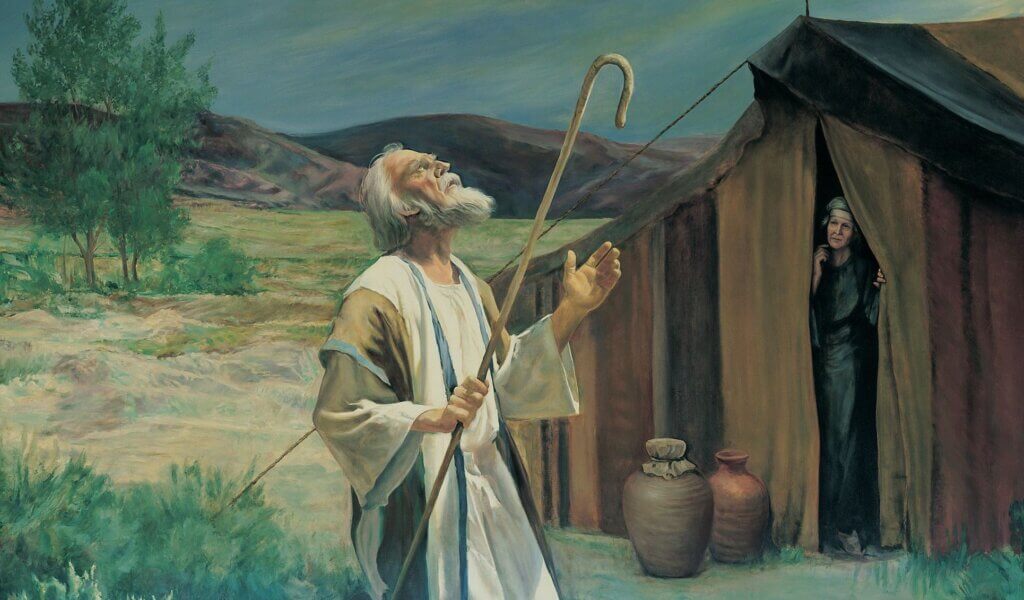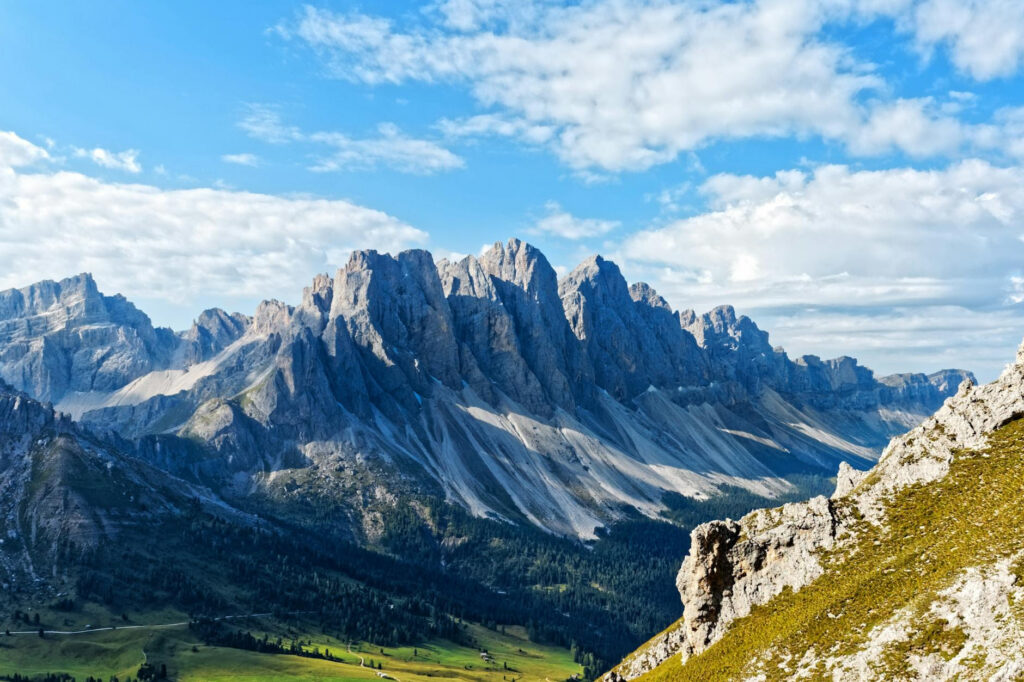When Abraham’s people, including his own father, worship idols and a famine sweeps the land, God commands Abraham to leave: “Jehovah said to Abram, ‘Move from your country and your kindred and your father’s house to a land I will show you. And I will make you a great nation. I will bless you and make your name great, and you will be a blessing. I will bless those who bless you and curse he who curses you. And in you shall all the families of the earth be blessed.’ So Abram left, as Jehovah had told him, and Lot went with him. Abram was seventy-five years old when he left Haran. And Abram took Sarai his wife and Lot his brother’s son and all their goods that they had gathered up, and the souls they had won in Haran, and they went forth to go into the Land of Canaan and entered the Land of Canaan” (Genesis 12:1–5; compare Joshua 24:2–3).
Jehovah rewards Abraham for leaving his native land and his extended family to enter the unknown by promising him a land of inheritance and a numerous posterity: “To your offspring I give this land, from the river of Egypt to the great river, the river Euphrates” (Genesis 15:18); “My covenant is with you; you will be a father of many nations. You will no more be called Abram but your name will be Abraham, for I am making you a father of many nations. I will make you exceedingly fruitful and make you into nations, and kings will come out of you. And I will establish my covenant between me and you and your offspring after you throughout their generations for an everlasting covenant, to be a God to you and to your offspring after you” (Genesis 17:4–7).
Isaiah predicts a time when Abraham’s end-time descendants face the same choice as Abraham—whether to leave or stay in Babylon. Jehovah thus reminds them that what he did for Abraham he will do for them if they heed his call. As Abraham came from the ends of the earth and received a Promised Land, so would they: “You, O Israel, my servant, Jacob, whom I have chosen, offspring of Abraham my beloved friend, you whom I have taken from the ends of the earth, called from its farthest limits—to you I say, ‘You are my servant; I have accepted you and not rejected you. Be not fearful, for I am with you; be not dismayed, for I am your God. I will strengthen you; I will also succor you and uphold you with my righteous right hand’” (Isaiah 41:8–10); “Jehovah will have compassion on Jacob and once again choose Israel; he will settle them in their own land, and proselytes will adhere to them and join the house of Jacob” (Isaiah 14:1).
Isaiah nevertheless sees that only persons who are righteous as Abraham was righteous heed Jehovah’s call: “Hear me, you followers of righteousness, seekers of Jehovah: Look to the rock from which you were cut, to the quarry out of which you were hewn; look to Abraham your father, to Sarah who bore you. He was but one when I called him, but I blessed him by making him many” (Isaiah 51:1–2); “So shall justice inhabit the desert, and righteousness abide in the farmland. And the effect of justice shall be peace, and the result of righteousness an assured calm forever. My people shall dwell in peaceful settlements, in safe neighborhoods, in comfortable dwellings. Blessed are you, who shall then sow by all waters, letting oxen and asses range free” (Isaiah 32:16–18, 20). As with Abraham, the lands of inheritance and blessed offspring God promises his elect are theirs by an “everlasting covenant” (Isaiah 61:7–9).
(From Windows on the Prophecy of Isaiah, pp 61–62)












